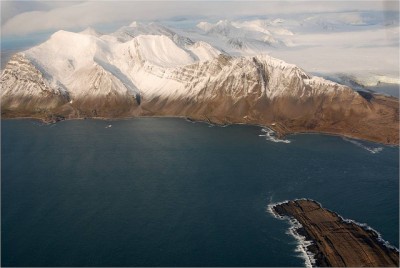Russia under an increasingly aggressive President Vladimir Putin has put Norway in an “entirely new situation,” especially regarding its authority in the Arctic, claims one local foreign policy expert. Svalbard has been singled out as vulnerable, he claims, as Russia moves from being a cooperative neighbour in the far north to flexing its military muscle.

“Last winter the struggle between Russia and Norway was about athletic competition at the Olympics in Sochi,” Pavel Baev, research director at the Peace Research Institute Oslo (PRIO), told newspaper Aftenposten on Wednesday. “Now Norway must do what it really doesn’t want to, that is to prepare us for a confrontation. The threat is already to a certain degree real.”
Last week, Norway’s police intelligence unit PST (Politiets sikkerhetstjeneste) listed Russian spying in Norway as among its national security concerns. On Thursday, Norway’s military intelligence unit (Etterretningstjenesten, or E-tjenesten) is due to present its own annual evaluation of national security and it’s expected to dwell on Russia more than ever before.

Both Baev, a professor who’s considered an expert on Russia, and other Russian experts contend that the “new situation” regarding Russia’s military build-up, Putin’s new campaign to “protect Russians” outside its own borders and Russia’s crackdowns on democracy and human rights at home must be taken very seriously. “We must think about what can come, instead of the situation we have had,” Baev told Aftenposten.
Norway has enjoyed good relations with Russia for years, often called a “special relationship” because of Russia’s role in liberating the northern Norwegian county of Finnmark from Nazi Germany’s occupation during World War II. Even during the height of the Cold War that raged from the late 1940s through the 1970s, residents of Northern Norway especially preferred to nurture good relations with the Russians under the Soviet system, instead of living in fear.
“Predators that attack our sheep and the danger of avalanches worries us more than Russia does,” Øivind Mjøs, a retired farmer in Finnmark’s neighbouring county of Troms, told Aftenposten over the weekend. He was, though, part of building the so-called Frøy-linjen, a military line of defense drawn by Norway and NATO as late as the 1980s from the southern end of the Lyngs- and Storfjord to the Finnish border. The theory was that any Soviet invasion of Norway would try to claim Finnmark, but be held off from Troms.
Fears Putin, ‘not Russia’
Mjøs has no fear of an invasion now but concerns are rising among local political leaders. “I fear Putin, not Russia,” said Arvid Lilleng, vice-mayor of Storfjord. He has worried that Norway and NATO have dismantled much of their military defense presence in Northern Norway, although the area will host the biggest NATO military exercises since 1967 in Finnmark next month.
“What’s happening now is a carbon copy of what Norway did in the years prior to 1940 (when Germany invaded,)” Lilleng told Aftenposten. “Norway didn’t pay attention to the threat of war that was building up.” He thinks it’s a “big mistake” to dismantle the Frøy-line now: “Norway should have a strong military presence in Finnmark, to show Putin that we take care of our country.”
As Russian fighter jets regularly buzz the Norwegian coast, to show off Putin’s military build-up, attention is turning to Russia’s role in the Arctic. Putin’s right-hand man Dmitry Medvedev agreed on setting an historic and long-sought territorial border with Norway in the Barents Sea when he was Russia’s president and NATO leader Jens Stoltenberg was Norway’s prime minister. Russia is expected to respect the boundary that it helped set itself, but Baev of PRIO cautions that Russia may still flex its muscle in the Arctic.
Setting sights on Svalbard
He points to Svalbard, the Arctic archipelago over which Norway was given sovereignty through an international accord in 1929, as an area “where Norway’s vulnerability may be challenged” and where Norway can be isolated. Baev noted that Russia has built up military supremacy in the Arctic, where Norway is a competitor in the gas market. Russia also retains control of a part of Svalbard, and may claim a need to protect its interests there.
Svalbard, with a population supported by controversial coal mining, polar research and tourism, can thus become an arena for demonstrations of Russian military power. John Berg, a Norwegian defense analyst, speculates that Russian military may also react if the Norwegian Coast Guard were to cite a Russian fishing vessel for poaching in Norwegian territory.
Asked why Russia has suddenly become so aggressive, Baev said it was difficult to explain. “No one on the outside has directly threatened Russian interests, but they nevertheless make military preparations,” he said. Russia doesn’t have great advantages in other areas, he noted, “but they have military resources,” and Russia uses its military might as a bargaining chip in international negotiations.
newsinenglish.no/Nina Berglund

